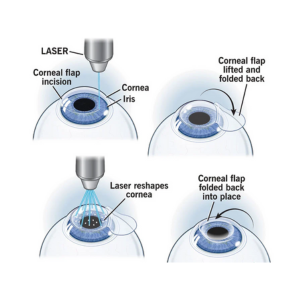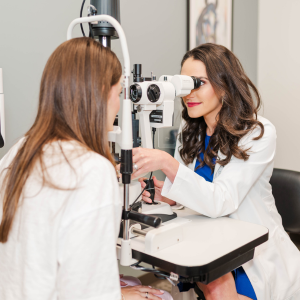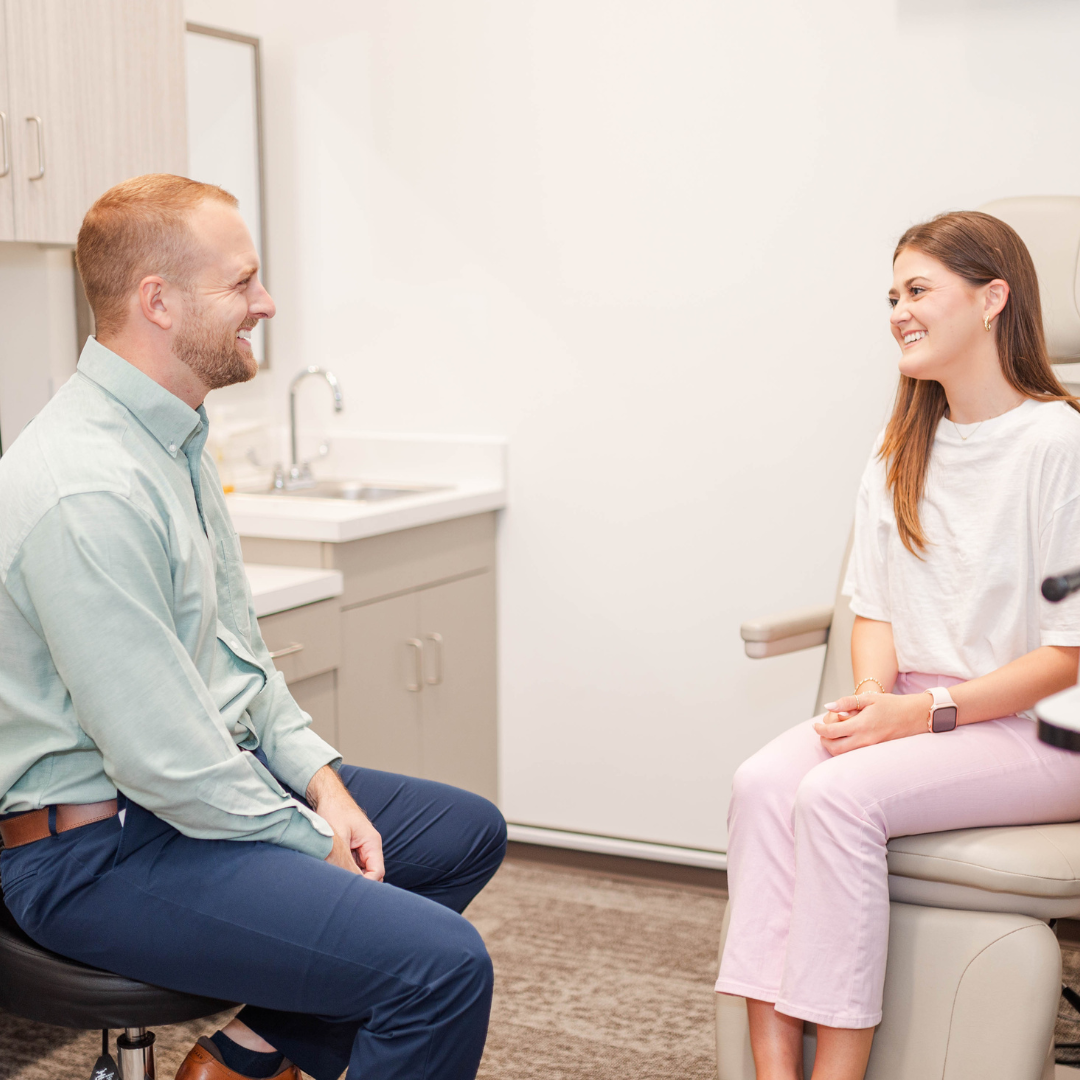Everything You Need to Know About LASIK
What is LASIK?

LASIK is a laser surgery to correct vision issues such as myopia, hyperopia, and astigmatism, possibly removing the need for glasses or contacts. The process reshapes the cornea for better light focus on the retina, takes 10-15 minutes per eye, and results are often seen within a day. However, as with all surgeries, LASIK has risks, requiring a thorough eye exam and consultation with Dr. Montgomery or Dr. Hawks.
What are the Alternatives to LASIK?

The most common alternatives to LASIK are:
PRK: Similar to LASIK, but no flap is created, resulting in a longer recovery with more discomfort.
Lens Replacement: A cataract surgery-like procedure to remove the need for glasses. Suitable for those over 60 or ineligible for LASIK. Learn more under “cataracts” tab here.
Orthokeratology (Ortho-K): Non-surgical alternative using night-time “retainer” lenses for glasses-free daytime vision. Learn more about Ortho-K here.
Who is a Good Candidate?

LASIK is suitable for those 18+ with a stable eye prescription for the last two years, effectively addressing mild to moderate myopia and astigmatism. More severe cases and hyperopia are individually assessed, considering corneal thickness and shape. Corneal health history, including severe dry eye, past infections, diseases, keratoconus, or scarring, may disqualify a candidate. Schedule a consultation with Dr. Montgomery or Dr. Hawks to determine if LASIK is right for you.
What are the Risks Associated with LASIK?

LASIK surgery rarely has complications. Typical issues like post-surgery dry eyes and temporary night glare are easily treatable or fade over time. Serious yet rare complications such as corneal flap issues or bulging cornea will be discussed in detail by your surgeon before surgery.
Will I Need Glasses After LASIK?

After LASIK, some individuals may still require glasses for near tasks like reading or computer work, especially if they are over 40. This can be managed with glasses or multifocal contact lenses. Over time, new prescriptions may arise, necessitating further correction. Despite this, most LASIK patients are satisfied as the required prescription is generally lower than before the surgery.
How Can I Get LASIK?

During your yearly check-up, express your interest in LASIK with Dr. Montgomery or Dr. Hawks. They will conduct the necessary evaluations to ascertain your suitability for the procedure. If you’re a good fit, we’ll connect you with a trusted local surgeon and manage your aftercare for a seamless experience.
